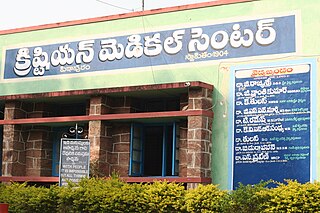The Church of the United Brethren in Christ is an evangelical Christian denomination with churches in 17 countries. It is Protestant, with an episcopal structure and Arminian theology, with roots in the Mennonite and German Reformed communities of 18th-century Pennsylvania, as well as close ties to Methodism. It was organized in 1800 by Martin Boehm and Philip William Otterbein and is the first American denomination that was not transplanted from Europe. It emerged from United Brethren churches that were at first unorganized, and not all of which joined this church when it was formally organized in 1800, following a 1789 conference at the Otterbein Church.
The Fellowship of Evangelical Bible Churches (FEBC) is a small evangelical Christian denomination with an Anabaptist Mennonite heritage. Most of the denomination's approximately 5000 members are in congregations located in the U.S. and Canada.

The Canadian Conference of Mennonite Brethren Churches (CCMBC) is a Mennonite Brethren denomination in Canada. It is a member of the Mennonite World Conference and the Evangelical Fellowship of Canada.
The Mennonite Church in India is a Mennonite denomination of India. The number of its members is about 3,500. It has 19 congregations. Its bishop has his seat at the town of Dhamtari in Chhattisgarh. It is part of the Mennonite World Conference.

Andhra Christian Theological College (ACTC) is a seminary in Telangana which was founded in 1964. It is affiliated with India's first university, the Senate of Serampore College (University), and has degree-granting authority under a Danish charter ratified by the government of West Bengal. ACTC is on the Hussain Sagar canal (north) in Gandhinagar, Hyderabad, about 4 kilometres (2.5 mi) from the Secunderabad Junction railway station.

Council of Christian Hospitals (COCH) is a not-for-profit healthcare provider in India. COCH is a body corporate under Indian Societies Registration Act and has its registered office in premises of one of its participating hospitals, that is, Christian Medical Centre, Pithapuram in East Godavari District of Andhra Pradesh.
The Board of Theological Education of the Senate of Serampore College (BTESSC) is the arm of theological education under the Senate of Serampore College (University). BTESSC was formed in 1975.
Protestants in Japan constitute a religious minority of about 0.45% of total population or 600,000 people in 2020.
Noble College in Machilipatnam was founded by late Robert Turlington Noble, an English missionary, in 1843. Rev. Noble came to then Masulipatnam as a Christian Missionary in 1841 and stayed until his death. He and his friend late Mr. Sharkey opened a native English school on 21 November 1843 as Noble High School. That school became Noble College later on. This school was termed by the head of the Madras Government "The Cambridge of South India." It is one of the first four educational institutions opened in India by the British Government.

Louis F. Knoll was an American Baptist missionary who taught Christian Ethics at the Andhra Christian Theological College, Hyderabad, affiliated with the Senate of Serampore College (University).
STBC-Centenary Baptist Church Secunderabad is a Baptist Church in the city of Secunderabad, India which was established in 1875 by the American Baptist Foreign Mission Society (ABM) and was later led by the Samavesam of Telugu Baptist Churches (STBC) through the Deccan Association. STBC-Centenary Baptist Church has a current membership of more than 3000. The original older structure and a new centenary structure built in 1991 exist side by side in the same premises. Worship services are only held in the new sanctuary. The church conducts worship in Telugu, English, Hindi and Manipuri.
Acharya A. B. Masilamani or Abel Boanerges Masilamani (1914–1990) was a Golden Jubilee Baptist pastor and evangelist on whom parallels had been drawn comparing his ecclesiastical ministry with that of Saint Paul. The Mar Thoma Syrian Church, one of the Saint Thomas Christian Churches founded by Thomas the Apostle in the first century which holds the annual Maramon Conventions used to have Masilamani preach at its conventions since the 1970s. During one such Maramon Convention held in 1983 at Maramon, Masilamani was one of the main speaker who spoke on Christology in the presence of the two patriarchs of the Mar Thoma Church, Alexander Mar Thoma and Thomas Mar Athanius.

Ravela Joseph was a Sapphire jubilee-Priest involved in Spiritual formation from the mid-1960s into the early 2000s in the Telugu states. He taught Systematic theology in Major Seminaries affiliated to the Senate of Serampore College (University), the nation's first modern University {a University under Section 2 (f) of the University Grants Commission Act, 1956} with degree-granting authority validated by a Danish Charter and ratified by the Government of West Bengal.

Christian Medical Centre is a private Baptist hospital based in Pithapuram, Kakinada district, Andhra Pradesh, India. It is a member of Council of Christian Hospitals.
The Bible Society of India Telangana Auxiliary is located in Secunderabad which was bifurcated from the erstwhile Andhra Pradesh Auxiliary on 2 February 2016.
The Kretzmann Commission was constituted in 1969 by the Board of Governors of the Andhra Christian Theological College, Hyderabad to:
survey and study the task of theological education in the Churches related to the College Society
Waldo Penner was a Baptist missionary who served in India from 1946 through 1981 as a team member of the Canadian Baptist Ministries. Penner was born in Secunderabad in India where his parents were missionaries of the American Baptist Mission.
Mennonite Brethren Centenary Bible College (MBCBC), founded in 1920, is a Mennonite Bible College in Shamshabad and is affiliated with the Conference of the Mennonite Brethren Churches in India and the nation's first University, the Senate of Serampore College (University)with degree-granting authority validated by a Danish charter and ratified by the Government of West Bengal.
Nalla Thomas was an Asian Christian and a spiritual personality, who served the Church in Assam and undivided Andhra Pradesh for nearly four decades comprising the seventies through the New millennium. He used to compose hymns for enhancing spiritual direction. Thomas was an Ecclesiastical administrator of Samavesam of Telugu Baptist Churches Society.





